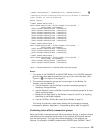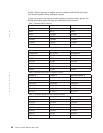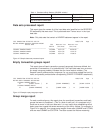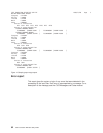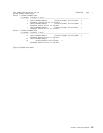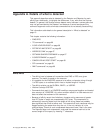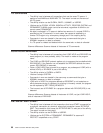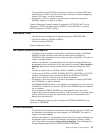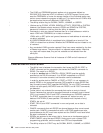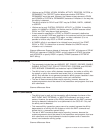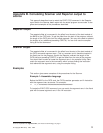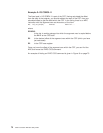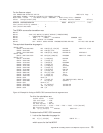
v If the transaction to be STARTed is defined as remote or a remote SYSID was
specified on the START command so that the command is function shipped to a
remote CICS region, no data is collected.
v Commands in error are treated in the same way as commands that give a
NORMAL response, so data is collected.
Scanner differences
: Scanner detects all instances of RETRIEVE WAIT, and all
instances of START that either specify TERMID, or omit NOCHECK, or specify
REQID (because of CANCEL affinity).
ADDRESS CWA
v The affinity here is between all transactions that issue ADDRESS CWA.
v The affinity relation is GLOBAL or BAPPL.
v Lifetime is always SYSTEM.
Scanner differences
: None.
GETMAIN SHARED/FREEMAIN
v The affinity here is between the transaction that obtains storage via GETMAIN
SHARED and the transaction that frees the same piece of storage via
FREEMAIN. Both transactions must be seen for there to be affinity. The match is
made on storage address.
v However, the situation is complicated by the fact that the storage address may
be passed to other transactions; and if they access the storage, they cannot be
detected, because the storage access does not take place through the CICS
API.
v The affinity relation may be GLOBAL, BAPPL,LUNAME, or USERID.
v Lifetime can be PCONV, LOGON, SIGNON, ACTIVITY, PROCESS, or SYSTEM.
However, the Detector always worsens LOGON and SIGNON to SYSTEM,
because of limitations in the way that this affinity is detected.
v Commands in error are ignored, as there is no address for matching GETMAIN
with FREEMAIN, no data is collected.
v A GETMAIN/FREEMAIN affinity is considered to be initiated from a terminal if the
GETMAIN is initiated from a terminal. Whether the FREEMAIN was so initiated or
not is irrelevant.
v Any unmatched GETMAIN SHAREDs are also reported if they have never
matched by the time a Detector stop occurs. They are output in a separate report
section. Note that on a start with restore data, they are not restored and are
deleted from the affinity file.
Scanner differences
: Scanner finds all instances of GETMAIN SHARED and all
instances of FREEMAIN.
LOAD/FREEMAIN
v The affinity here is between the transaction that loads the program via LOAD and
the transaction that releases the same program via FREEMAIN. The match is
made on load point address.
v However, the situation is complicated by the fact that the load point address may
be passed to other transactions (for example, the program is actually a table);
and if they access the program, they cannot be detected. This is analogous to
storage address passing with GETMAIN SHARED/FREEMAIN.
Appendix A. Details of what is detected 67
|
|
|



